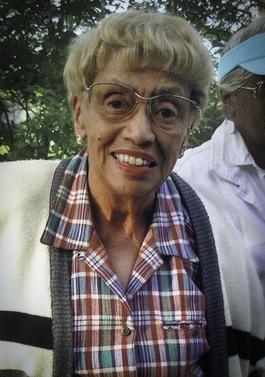Lois Wendland Banner is an American author and emeritus professor of history at the University of Southern California. She is one of the earliest academics to focus on women's history in the United States. Her work includes biographies of Margaret Mead, Ruth Benedict, Marilyn Monroe and Greta Garbo as well as the textbook Women in Modern America: A Brief History.

Charlotte Anne Bunch is an American feminist author and organizer in women's rights and human rights movements. Bunch is currently the founding director and senior scholar at the Center for Women's Global Leadership at Rutgers University in New Brunswick, New Jersey. She is also a distinguished professor in the Department of Women's and Gender Studies at Rutgers.
Douglass Residential College is a non-degree-granting program established in 2007 and open to female undergraduate students at any of the degree-granting schools of Rutgers University-New Brunswick. It replaced the liberal arts degree-granting Douglass College which had been opened in 1918. Douglass, originally named New Jersey College for Women, was renamed in 1955 after its founder and first dean, Mabel Smith Douglass.
Carmen Twillie Ambar is an American attorney, academic, and the current president of Oberlin College in Ohio. She was appointed to the post in May 2017.

The Olin Business School is the business school and one of seven academic schools at Washington University in St. Louis. The school offers undergraduate, master's, doctoral, and executive programs.
Mabel Smith Douglass was the first dean, in 1918, of the New Jersey College for Women in New Brunswick, New Jersey. In 1955, the college was renamed Douglass College in her honor. Douglass College is now part of Rutgers University and the library is named for Mabel Smith Douglass. The library "has a primary collection focus on women’s, gender, and sexuality studies. It is also home to the Performing Arts Library and the New Brunswick Libraries media collection."

June Claire Wayne was an American painter, printmaker, tapestry innovator, educator, and activist. She founded Tamarind Lithography Workshop (1960–1970), a then California-based nonprofit print shop dedicated to lithography.

The Eagleton Institute of Politics at Rutgers University was established in 1956 with an endowment from Florence Peshine Eagleton (1870–1953), and it focuses on state and national politics through education and public service. Ruth Mandel served as director for over 20 years, before being succeeded in that role by John Farmer Jr. in September, 2019, and Elizabeth C. Matto in September, 2022.
Mary S. Hartman joined the Douglass History Department in 1968 and served as director of the Women’s Studies Institute from 1975 to 1977.
Mary K. Trigg is an American educator, author, and academic. She serves as an associate professor in the department of women's and gender studies at Rutgers University.
The School of Communication and Information (SC&I) is a professional school within the New Brunswick Campus of Rutgers, The State University of New Jersey. The school was created in 1982 as a result of a merger between the Graduate School of Library and Information Studies, the School of Communication Studies, and the Livingston Department of Urban Journalism. The school has about 2,500 students at the undergraduate, masters, and doctoral levels, and about 60 full-time faculty.

The Center for Women's Global Leadership, based at Rutgers University, was founded in 1989 by Charlotte Bunch, the former executive director and an internationally renowned activist for women's human rights. Executive Director Krishanti Dharmaraj is also the founder of the Dignity Index and co-founder of WILD for Human Rights and the Sri Lanka Children's Fund. The former executive director, Radhika Balakrishnan, is now the faculty director, and a professor in the Department of Women's and Gender Studies at Rutgers, chair of the Board of the US Human Rights Network, and a board member of the Center for Constitutional Rights. Located on Douglass Residential College at Rutgers University, CWGL is a unit of International Programs within the School of Arts and Sciences and is a member of the Institute for Women's Leadership, a consortium of women's programs at Rutgers.
Public Leadership Education Network (PLEN) is a nonprofit organization based in Washington, D.C. Its focus is to introduce college women and marginalized gender groups to role models, career paths, and skills trainings before they enter the workforce, to help prepare them for leadership roles in public service. PLEN’s mission is to empower, educate, and engage women and marginalized gender groups in public policy to promote diverse, inclusive leadership in policy making.

Jewel Plummer Cobb was an American biologist, cancer researcher, professor, dean, and academic administrator. She contributed to the field of cancer research by studying the cure for melanoma. Cobb was an advocate for increasing the representation of women and students of color in universities, and she created programs to support students interested in pursuing graduate school.

Bruce Kingma is an American economist and academic entrepreneur, who since 1988 has taught and worked in the United States, Canada, and New Zealand. Kingma is a pioneer in experiential entrepreneurship education and community engagement and his work cover topics ranging from academic entrepreneurship, entrepreneurship and religion, information economics, online education, community engagement, library science, and nonprofit management.
The Women's Caucus for Art (WCA), founded in 1972, is a non-profit organization based in New York City, which supports women artists, art historians, students, educators, and museum professionals. The WCA holds exhibitions and conferences to promote women artists and their works and recognizes the talents of artists through their annual Lifetime Achievement Award. Since 1975 it has been a United Nations-affiliated non-governmental organization (NGO), which has broadened its influence beyond the United States. Within the WCA are several special interest causes including the Women of Color caucus, Eco-Art Caucus, Jewish Women Artist Network, International Caucus and the Young Women's Caucus. The founding of the WCA is seen as a "great stride" in the feminist art movement.
Catharine R. Stimpson is a feminist scholar, University Professor, professor of English, and dean emerita of the Graduate School of Arts and Science at New York University.
Ferris Olin is an American feminist, scholar, art historian, curator, educator and librarian, who founded and directed The Margery Somers Foster Center, part of the Rutgers University Libraries located at the Mabel Smith Douglass Library (MSDL). She is best known for co-founding the Institute for Women and Art, the Miriam Schapiro Archives on Women Artists, The Feminist Art Project, and the Women Artists Archive National Directory with Judith K. Brodsky.
Rita Mae Kelly was an American political scientist. She was a professor of political science at the University of Texas at Dallas, where she held the Andrew R. Cecil Endowed Chair in Applied Ethics. She was also the Dean of the School of Social Sciences at UT Dallas.
Judith Kapstein Brodsky is an American artist, curator, and author known for her contributions to feminist discourse in the arts. She received her B.A. from Harvard University where she majored in Art History, and an M.F.A. from Tyler School of Art at Temple University. She is Professor Emerita in the Department of Visual Arts at Rutgers, State University of New Jersey. A printmaker herself, Brodsky is founding Director of the Rutgers Center for Innovative Print and Paper in 1996, later renamed the Brodsky Center in her honor in September 2006, and which later joined the Philadelphia Academy of Fine Arts (PAFA) in 2018. She was also co-founder, with Ferris Olin, of the Center for Women in the Arts and Humanities at Rutgers University in 2006. She was the first artist appointed as president of the Women's Caucus for Art, an active Affiliated Society of the College Art Association.







